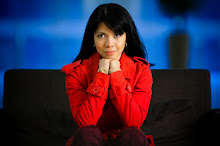Volume 2, Issue 33- August 19-25, 2011
International Tribune
Here we, here we! The greatest show on earth is about to start. From France to the United States, Russia and Argentina, the voting frenzy begins! Citizens of each nation will cast their ballot to vote for their next president in 2012. Once again, the future of the world is in the voters' hands. Or at least that is how we perceive elections in democracy to be. Can your vote truly make a difference? How will you decide who to vote for next time?
Our great grandparents fought for this civic right (and duty). Voting has become both a moral institution and a symbol of a free country. If not upheld, we think twice and berate nations which oftentimes brazenly tamper elections. We refuse to keep diplomatic relations and engage in treaties with states that deprive their citizens of these sacrosanct rights. The American and French revolutions were fought so the people could elect the leaders of their newly established republic. When Fidel Castro became the undisputed dictator of Cuba, the US placed an embargo in 1961 on this tiny Carribean island which has remained since then. Voting and elections are the uncontestable factors we can use to measure what is a real democracy. The next question is, does voting really change the outcome?
Here is a cerebral challenge. Voting is like believing your horoscope, and partaking in election is like going to a circus. Do you get the drift? Scientific case studies by psychologists and political sociologists alike have proven that most people vote because: 1) they are bandwagoning and joining in on the fun; 2) if they do not vote, they think that system will fall apart and the worst prediction would possibly come true. According to Dr. Kanazawa of Psychology Today, “the reasoning goes that, if everybody thought that voting was irrational and a waste of time, nobody would vote and democracy would collapse. This is known as magical thinking, and it is a very common fallacy. “ His second argument is that, “the civic duty of democratic citizens simply states that one must vote in an election. It does not say whether you have to vote Democratic or Republican. Regardless, you will fulfill your civic duty as a democratic citizen simply by turning up at the polling station and casting your ballot. It does not matter who you vote for.” In a giant democracy such as the United States that relies on the Electoral College to narrow down the winner and select the next president, Dr. Kanazawa’s theory is not that far-fetched. The probability that your vote will make a difference in the outcome is infinitesimally small.
Maybe the best scene for a truly representative election voted by the people, and for the people, is to have heroes and villains as presidential candidates. It is easier to rule out the bad guys and once you vote for the good ones. There is a self-fulfilling aspect at play in this type of scenario and that you feel you have performed your civic obligation. Moreover, anyone would feel more positive and that they did the right thing voting for the good guy. Going back a decade ago, statistics have shown that voter turn-out was very high during the Al Gore and George Bush, Jr. presidential election of 2000. If you calculate in simple math, the winner was Al Gore. In a sudden twist of fate, Gore was not the declared winner, thanks to the Electoral College process even though popular votes proved that he (Al Gore as the hero) was the sure winner over George Bush, Jr. (the villain). Yes, this may not be the best example because it involves ‘fuzzy math’. However, the Gore versus Bush and Electoral College fiasco is representative of Dr. Kanazawa’s theory that voting does not really have a great impact on election outcomes, especially in the United States.
Is Nicolas Sarkozy really out of the game? Can anyone stop Vladimir Putin this time from heading back to the Kremlin? Is Cristina Kirchner really the reincarnated Evita of Casa Rosada? And finally, who will be the Republican warrior who will beat Obama? Election time is like a circus. We get to see different performers juggle their special acts. Candidates of all stripes are now beginning their campaign tour and will showcase the best tricks of their trade. Some will sing to the tune you want to hear and others will clown around. And in the last minute, there will likely be some magic tricks that will be pulled out of a hat. Overall, there will be banners and streamers, pins and flags to lure you into the fun.
Get ready, the presidential circus is coming to your town.


No comments:
Post a Comment